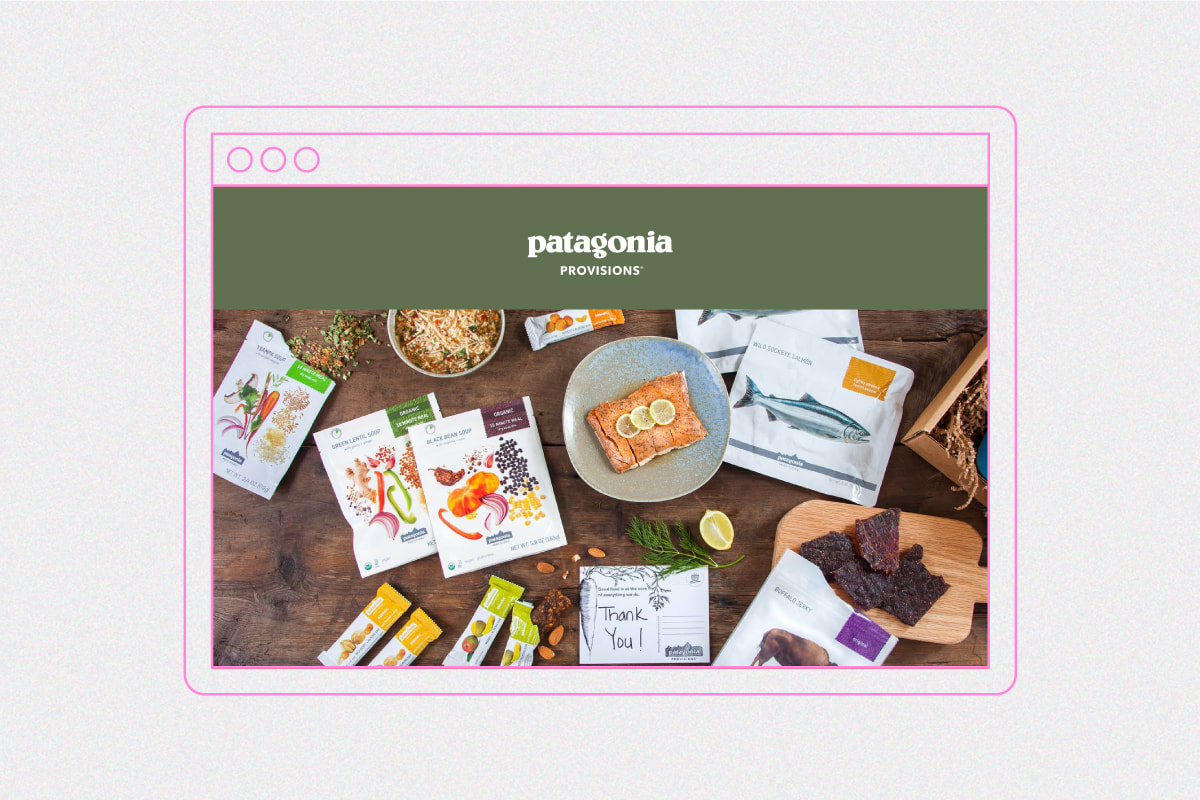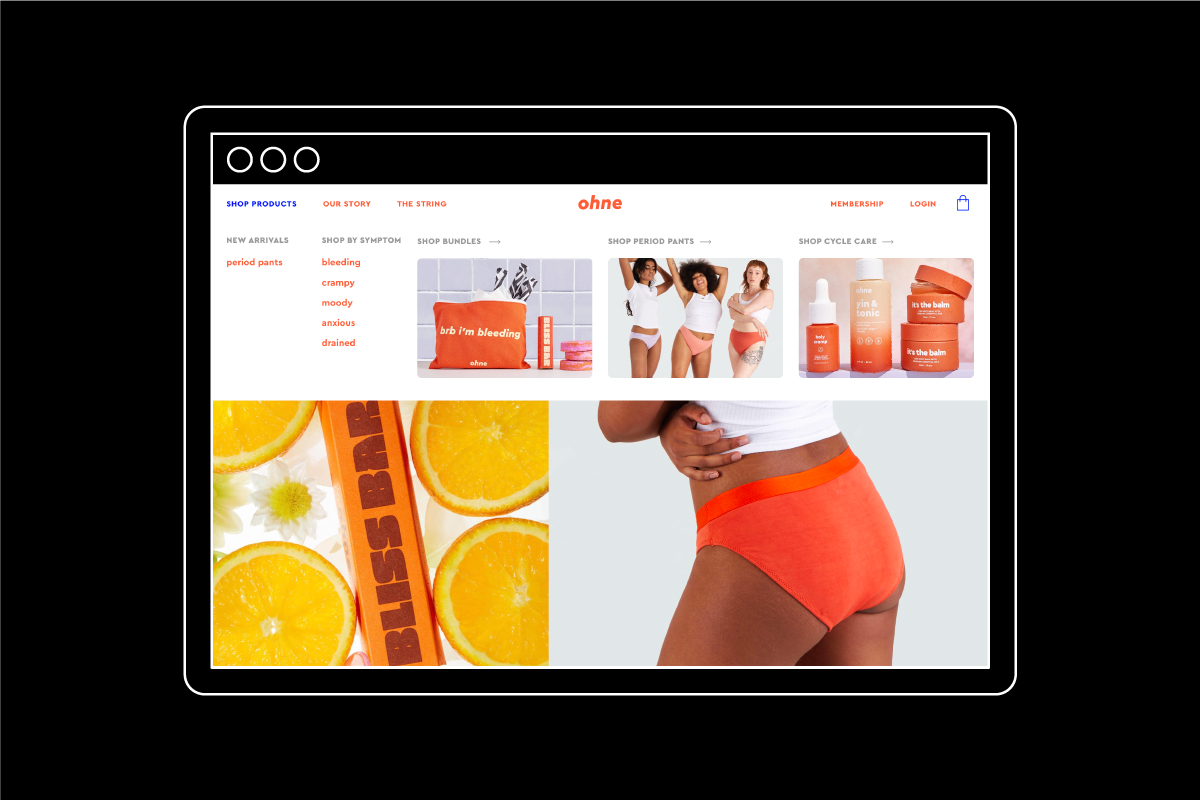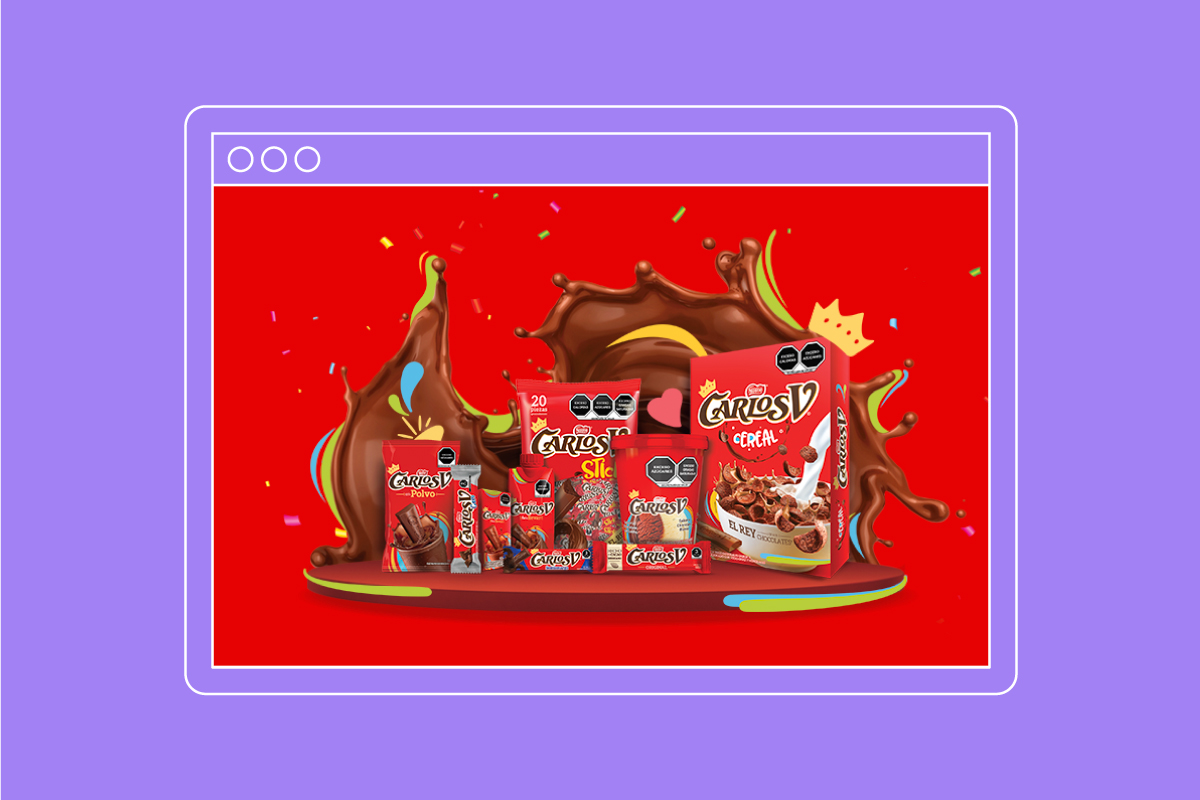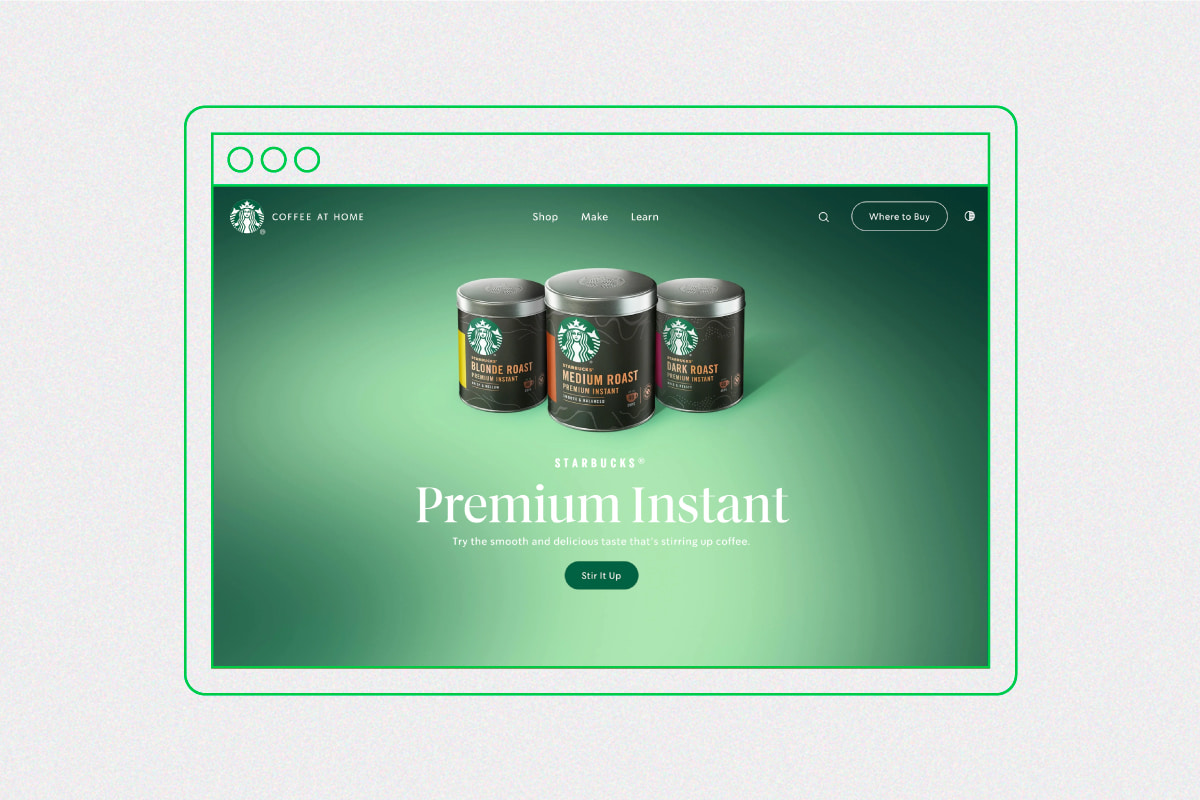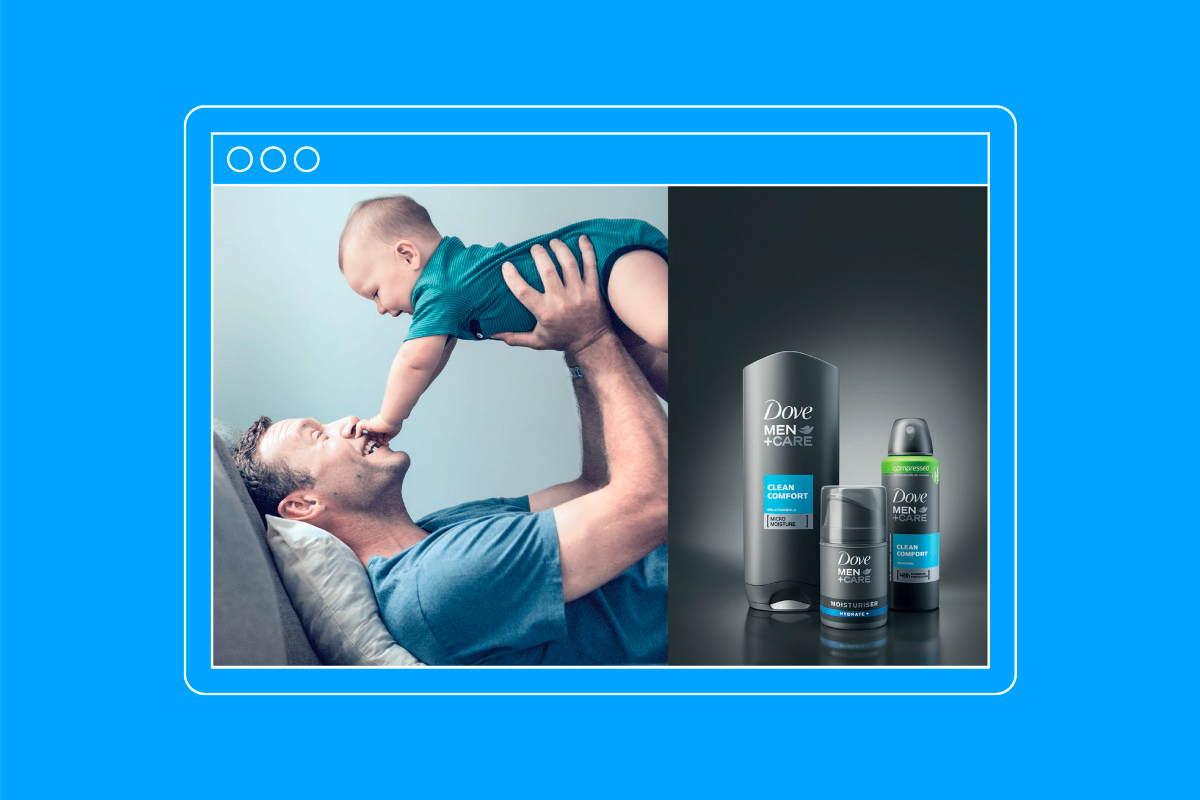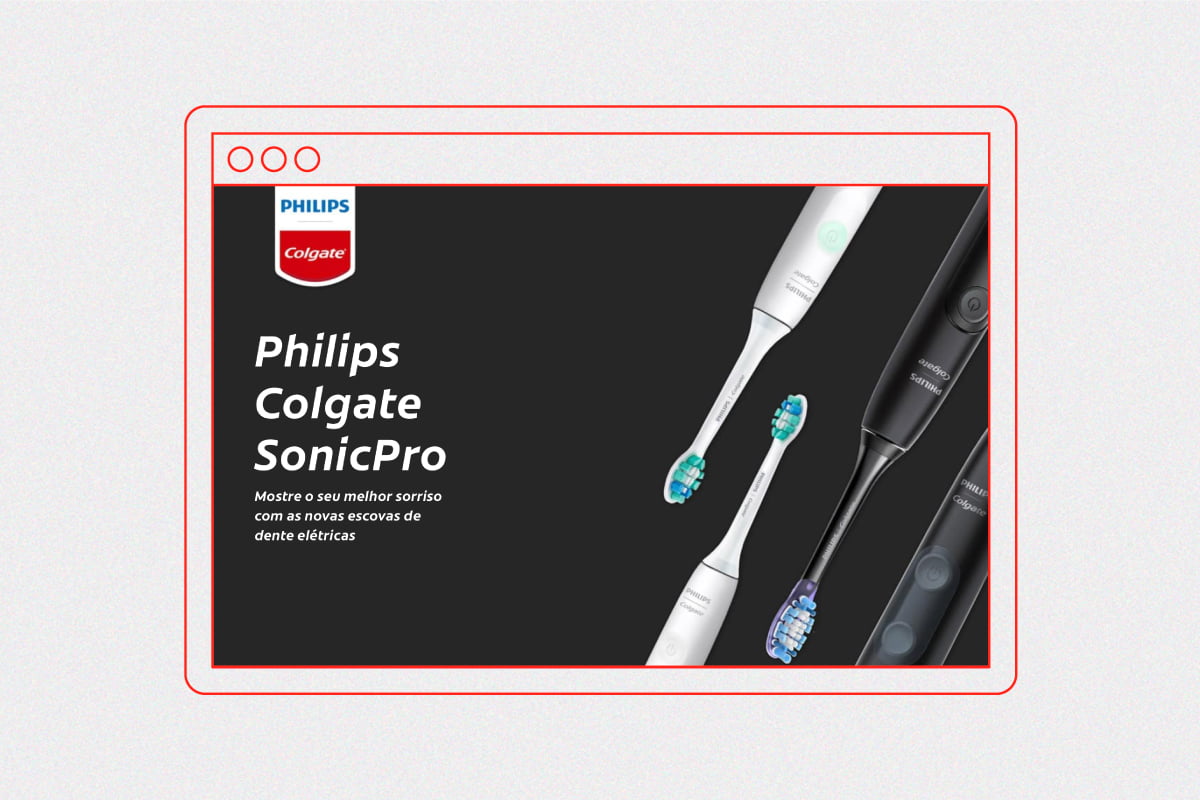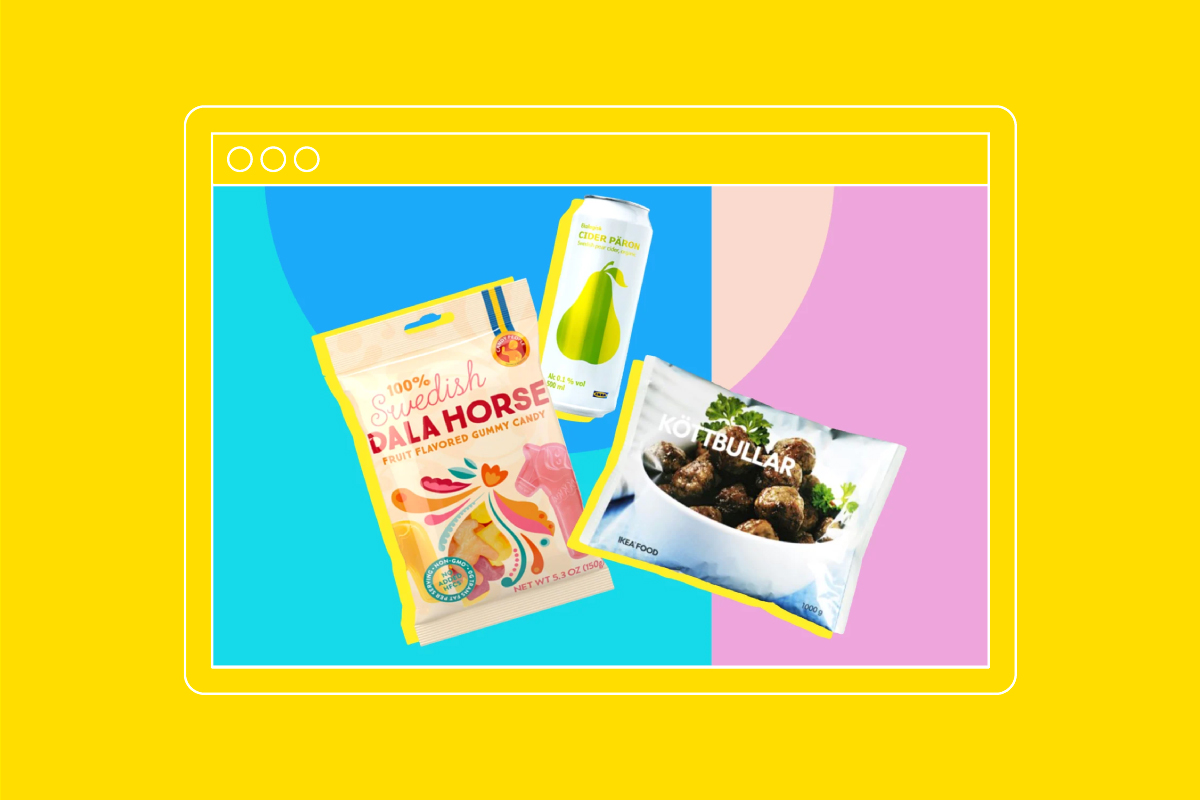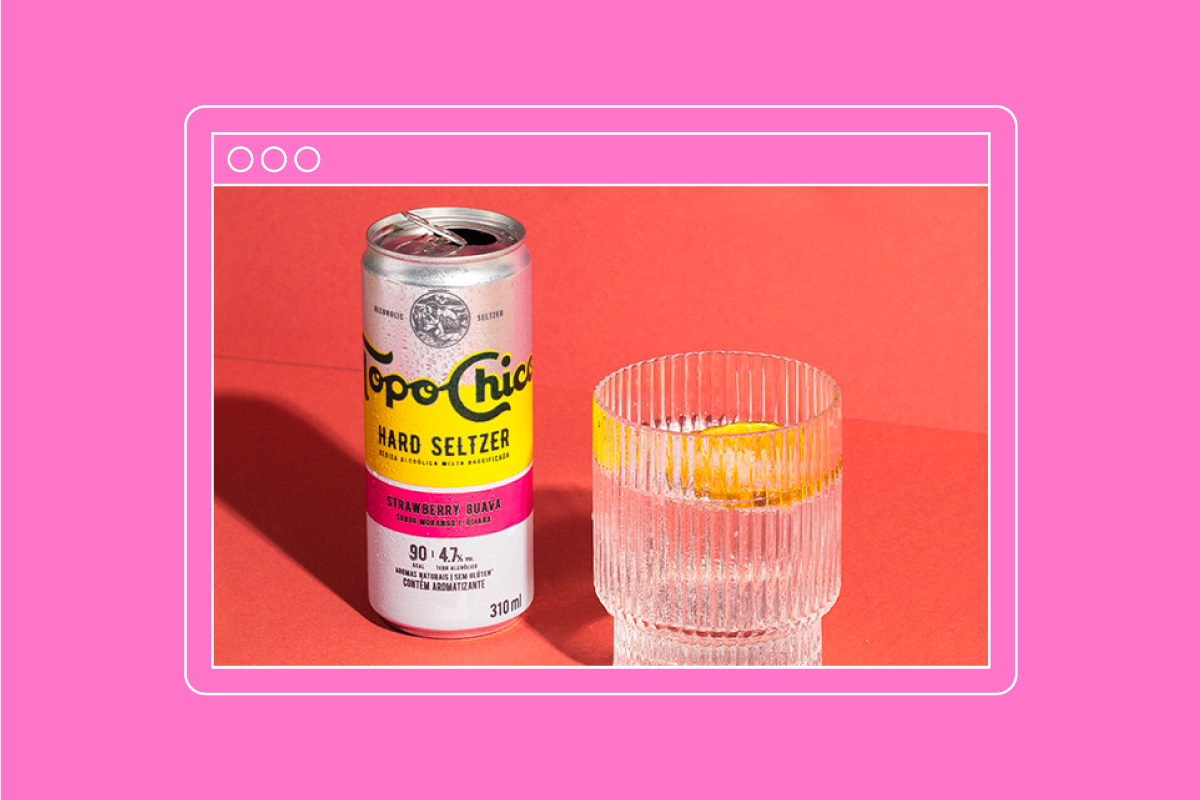Brands that want to grow in a healthy way have to be consistent with their purpose and focus on consumer needs. This is what we seek to show in our article that explains everything about portfolio strategy and brand architecture (if you haven’t read it yet, click here). For inspiration on the subject, we bring references from brands that have successfully extended their portfolio outside their original segments, seeking to attract a new audience and better serve the existing ones, without ever losing sight of their mission.
Patagonia: from clothing to wine
Patagonia was known for being just a clothing and accessories brand for adventure sports. In 2015, it decided to take its mission further (saving the planet) and meet the new needs of its target audience by launching the sub-brand Provisions, which offers healthy, ethical and environmentally friendly food lines. Today not only does it offer food, but also its own beer and wine. Find out more about it here.
Ohne: from tampons to chocolate
Who said menstrual care is limited to tampons? Ohne is an irreverent English brand that seeks to “make people who menstruate happier every day of their cycle”. In addition to offering products such as organic tampons and panties, it has a line of CBD-enriched chocolate bars, supplements and essential oils. Find out about it here.
Carlos V: from chocolate bars to breakfast cereals
Carlos V, a popular and traditional chocolate bar from Mexico, was fighting intense competition from other snack brands. By reviewing the entire brand strategy, it reorganized its portfolio to diversify its offerings and also conquer the adult audience. Today, the brand is present in breakfast cereals, chocolate drinks and premium lines such as Carlos V Reserva Real and organic. Read more about it here.
Starbucks: from the coffee shop to your house
The coffee shop chain has conquered the world – today, in large metropolises, we can’t help coming across a Starbucks on each corner. To continue with its mission of ‘inspiring and nourishing the human spirit’ and seducing the public that doesn’t drink coffee on the street, it lacked one thing: entering people’s homes. This is what they did by launching the ‘at home’ collection, which recently began to be sold in supermarkets in various formats, from capsules to instant coffee, and through partnerships with Nespresso. Read about it here.
Dove: from women to men
Dove has many successful line extensions that can be mentioned. Perhaps the most impressive is the line extension for men, expanding the concept of Real Beauty beyond women. Launched in 2010, the brand capitalized on a need in the beauty and personal care category, since at that time, few products were aimed at men.
Colgate: from toothpaste to electronics
Colgate’s ambition is to be the leader in oral care and to give everyone a reason to smile. As a result, it quickly extended its products to offer a wide variety of lines in a commoditized category. Today, there are more than 13 lines in Brazil that meet all needs and profiles, from Natural Extracts, which brings natural elements (read more about it here) to Luminous White, aimed at coffee and wine lovers. In the brush segment, Colgate has partnered with Phillips to launch Sonic Pro, entering the world of technology.
Ikea: from furniture to restaurant delivery
Ikea is known for selling the concept of the “Swedish way of life”, with product names that are purposefully exotic and incomprehensible to the rest of the world. Its restaurants and Nordic dishes, located outside the store, have also become famous. Aware of this success, in addition to furniture and decorative objects, the chain began to offer several frozen dishes and foods inspired by Swedish cuisine. In 2019, the brand began testing delivery in its restaurant in Paris. Read more about it here.
Coca Cola: from soda to alcoholic beverage
Do you already know the hard-seltzer? The drink made of lightly carbonated water and with 4.7% alcohol became a hit among Generation Z, for its low-calorie content and for being versatile in the preparation of cocktails. Coca-Cola Brazil, which seeks to refresh people in body and mind, and whose master brand follows an independent architecture (Ades, Valle Juices and Crystal Water are also part of the portfolio) acquired Topo Chico in 2017, debuting in alcoholic beverages.

